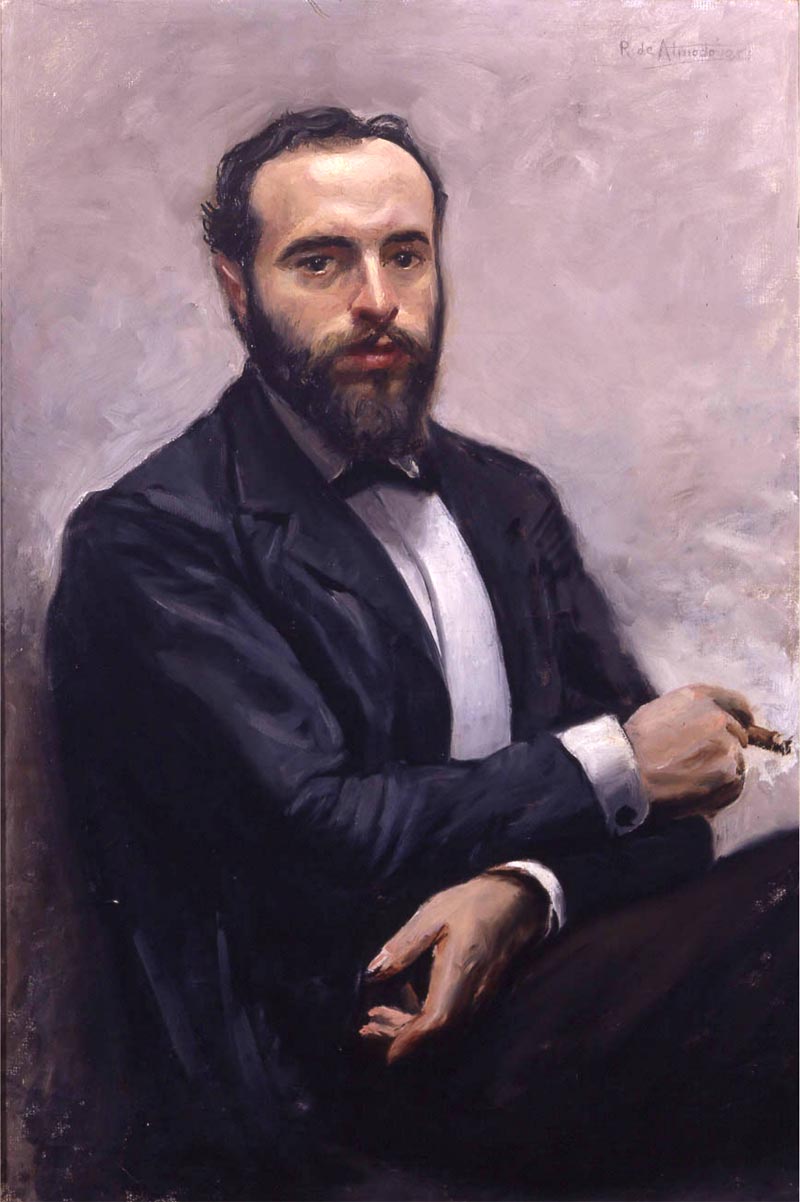Spanish painter and writer Ramón Gaya (for an introduction to whom one is indebted to Andrés Trapiello and his excellent diaries, published under the collective title Salón de pasos perdidos) on Galdós:
 |
| Gaya, by Juan Ballester |
Galdós I imagine taking one turn after another around
Madrid, without haste, to be sure, but not after the fashion of the promenader
or the flâneur or with the flâneur’s cynicism; rather, with that
stray dog’s gait that is wisdom more exactly than it is slowness; after all,
what might come across as vagueness of objective in stray dogs is nothing other
than wisdom, profound wisdom, the conviction that there are no absolute places to betake oneself to.
Galdós, with his overcoat and scarf, looked like a high-class beggar, a beggar
who doesn’t beg, who gets everything without begging; and little by little
reality gave itself over to him cordially, without violence, without conquest,
without study. Flaubert (certainly a
great artist, but less chosen) has such a studious
attitude before reality that it often flees, flees offended to give itself over
to someone else, someone who, rather than observing it as a phenomenon, treats
it as a friend, as a brother; treating reality as an equal—that is, without
servility or haughtiness and, of course, without objectivity, without the
insult of objectivity—is Galdós’s secret. Galdós sees the most surprising, most
monstrous, most unlikely events with great naturalness because, instead of
striking the coarse pose of the observer of a spectacle, he offers to be a
friend to those events—not to get involved, to take sides, since that would be
butting in where he’s not wanted—he offers to be a fellow creature of reality’s
to keep it from feeling forsaken or observed. It’s not that Galdós mingles with
and gets lost in reality; instead, he makes common cause with it without
getting involved in it, and once this common cause is made, once they have
become brothers, nothing about this reality can surprise him. It’s easy to
identify two attitudes in the great novelists, that of the objective
scoffer—Stendhal—and that of the generous wreck—Dostoyevsky—but it’s hard to find
a compassionate attitude like Galdós’s. Flaubert thought he was la Bovary, but the thing isn’t being the
characters on the inside or gazing on them from afar; the thing is cohabiting
with them, approaching them without passion or expediency. Now, after several
foolish remarks from 1898 about Galdós, it seems that he is beginning to win
favor again, but the researchers, historians, and critics—as always—are digging
laboriously through the material of his novels and weighing and measuring the
prose, the style, the composition, the accuracy, the imagination, and the symbols
without understanding that while they are giving themselves over to this
shortsighted work, his greatness is escaping them. We will find Galdós’s
greatness not in the composition or content of his novels but in the harmonious
relationship miraculously created between him and Reality.



